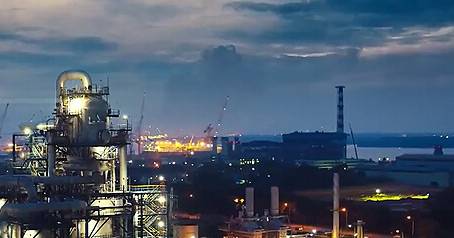nov. . 08, 2024 02:43 Back to list
Understanding the Benefits and Applications of CPVC Pipe in Plumbing Systems
Understanding CPVC Pipe A Comprehensive Guide
CPVC, or Chlorinated Polyvinyl Chloride, is a versatile thermoplastic widely used in various plumbing applications and industrial processes. This material is favored for its remarkable durability, resistance to corrosion, and ability to withstand high temperatures. In this article, we will explore the properties, advantages, applications, and installation guidelines of CPVC pipes, which make it an excellent choice for both residential and commercial projects.
Properties of CPVC Pipe
One of the most significant properties of CPVC pipe is its high-temperature resistance. CPVC can handle temperatures up to 200°F (93°C) without losing its structural integrity. This makes it an ideal choice for hot water supply lines and heating systems. Additionally, CPVC is resistant to many aggressive chemicals, making it suitable for industrial applications where exposure to corrosive substances is common.
In terms of mechanical strength, CPVC pipes are known for their rigidity and toughness. They can withstand pressures ranging from 100 to 400 PSI, depending on the pipe size and wall thickness. This makes CPVC a reliable option for high-pressure systems in both residential and industrial environments.
Advantages of CPVC Pipe
The benefits of using CPVC pipe extend beyond its physical properties. One of the key advantages is its ease of installation. CPVC pipes are lightweight, making them easier to handle compared to metal pipes. They can be easily cut using standard tools and joined using solvent cement, which results in a secure and leak-proof connection. This simplicity in installation can lead to significant time and labor cost savings during construction.
Another notable advantage is CPVC's resistance to rust and scaling. Unlike traditional metal pipes, CPVC does not corrode over time, which ensures a longer lifespan and reduced maintenance costs. Homeowners and businesses can rely on CPVC to provide consistent water quality without the risk of contaminants leaching into the water supply.
cpvc pipe

Additionally, CPVC pipes are more energy-efficient. They provide excellent thermal insulation, which helps maintain the temperature of the fluids being transported, minimizing heat loss. This is particularly beneficial in hot water systems where energy efficiency translates into lower utility bills.
Applications of CPVC Pipe
CPVC pipes are widely utilized in a variety of applications, making them a popular choice in multiple sectors. In residential plumbing, they are commonly used for hot and cold-water supply lines, as well as in various appliances like water heaters. Their flexibility and resilience make them suitable for retrofitting existing plumbing systems.
In the industrial sector, CPVC pipes are employed in chemical processing, wastewater treatment, and irrigation systems. Their ability to withstand harsh chemicals and high temperatures makes them ideal for these demanding applications. Furthermore, CPVC is also used in fire sprinkler systems, providing an effective means of fire safety while ensuring compliance with industry regulations.
Installation Guidelines for CPVC Pipe
When installing CPVC pipes, it is essential to follow some best practices to ensure optimal performance. First, always ensure that the pipes are cut straight and deburred to prevent any obstructions in flow. When joining pipes, make sure to use approved solvent cement and follow the manufacturer's instructions for application. This ensures a proper bond and avoids leaks.
Also, CPVC pipes should be supported adequately to prevent sagging or stress. Use appropriate hangers and spacing, as recommended by industry standards, to maintain the integrity of the system. Finally, consider the ambient temperature during installation. CPVC is sensitive to extreme cold, so if the temperature goes below freezing, take necessary precautions to protect the pipes until the installation is complete.
In conclusion, CPVC pipes offer an array of advantages for plumbing and industrial applications. Their durability, resistance to corrosion, and ease of installation make them a popular choice among builders and contractors. By understanding CPVC's properties and following proper installation guidelines, users can ensure a reliable plumbing system that will stand the test of time. Whether for residential or industrial use, CPVC pipes are indeed a smart investment.
-
High-Quality PPR Pipes and Fittings Durable ERA PPR & PVC PPR Solutions
NewsJul.08,2025
-
Black HDPE Cutting Board - Durable, Non-Porous & Food Safe HDPE Plastic Cutting Board
NewsJul.08,2025
-
High-Quality CPVC Panel Durable HDPE & PVC Panels Supplier
NewsJul.08,2025
-
Double PE Welding Rod Supplier - High Strength, Durable & Versatile Welding Solutions
NewsJul.07,2025
-
High-Quality PVC-O Pipe Supplier Durable 75mm PVC Pipe & Connections Leading PVC Pipe Company
NewsJul.07,2025
-
HDPE Drainage Pipe Supplier – Durable & Corrosion-Resistant Solutions
NewsJul.06,2025

